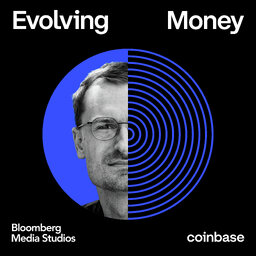For its first 20 years, Amazon relied on UPS and other delivery companies to get packages to its customers’ doorsteps. Then a shipping disaster one Christmas made Jeff Bezos decide to build his own transportation network.
Reporter Brad Stone chronicles the remarkable expansion of the Amazon transportation network into our communities, the company’s strained relationship with its delivery contractors and drivers, who wear Amazon uniforms but do not technically work for the tech giant.
In 1 playlist(s)
Foundering
Foundering is an award-winning, serialized podcast from the journalists at Bloomberg Technology. Eac…Social links
Follow podcast
Recent clips

Evolving Money: Rebuilding the Creator Economy (Sponsored Content)
18:29

OpenAI Part 5: Beware the Ides of November
47:50

OpenAI Part 4: Heaven and Hell, Part 2
21:59
 Foundering
Foundering